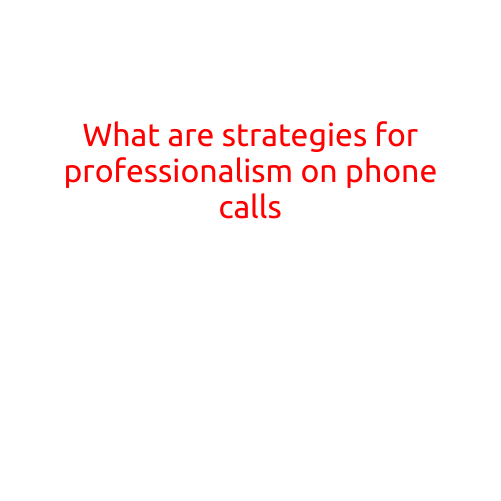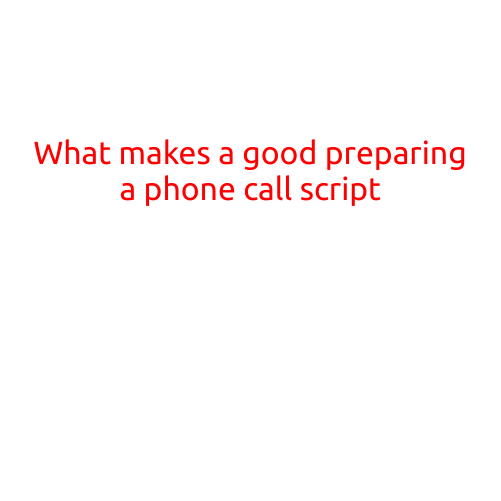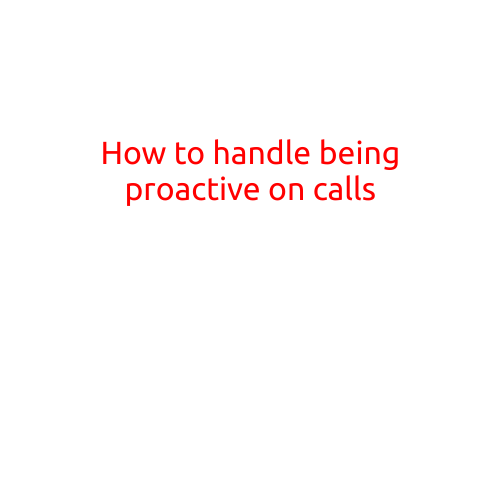
What are Strategies for Professionalism on Phone Calls?
In today’s fast-paced business world, phone calls are an essential tool for communication and networking. With the rise of remote work and digital communication, it’s more important than ever to maintain a professional tone and demeanor on phone calls. In this article, we’ll explore strategies for professionalism on phone calls to help you make a strong impression and achieve your goals.
1. Prepare Beforehand
Before making a phone call, take a few minutes to prepare. Review the purpose of the call, gather any necessary information or materials, and have a clear idea of what you want to discuss. This will help you stay focused and on track during the call.
2. Answer Calls Promptly
When your phone rings, answer it promptly and professionally. Use a warm and friendly greeting, such as “Hello, this is [Your Name].” Avoid answering with a simple “hello” or “yeah?” as this can come across as abrupt.
3. Be Attentive
During the call, pay attention to what the other person is saying and show that you’re engaged. Avoid interrupting, and make sure to ask clarifying questions if you’re unsure about something.
4. Use Professional Language and Tone
Use professional language and a professional tone during the call. Avoid using slang, jargon, or overly casual language, and keep your tone respectful and courteous. If you’re calling from a noisy environment, consider asking to call back when it’s quieter.
5. Be Prepared to Take Notes
Take notes during the call to show that you’re paying attention and to help you remember important details. Use a notebook or digital note-taking app, and avoid typing on your laptop or phone as this can be distracting.
6. Show Enthusiasm and Interest
Show enthusiasm and interest in the conversation by asking open-ended questions and expressing genuine curiosity. This can help build rapport and keep the conversation moving.
7. Manage Distractions
Minimize distractions during the call by finding a quiet, private space to talk. Turn off notifications, put away your phone, and try to avoid multitasking.
8. Wrap Up the Call Professionally
When wrapping up the call, thank the person for their time and reiterate any agreed-upon next steps. Take a few moments to summarize the conversation and ensure you’re on the same page.
9. Follow Up
After the call, follow up with a brief email or message to summarize the conversation and confirm any agreements or actions. This shows that you’re responsible and helps to keep the communication flowing.
10. Practice Active Listening
Finally, practice active listening by fully focusing on the conversation and avoiding mind-wandering. Repeat back what you’ve heard to ensure you understand, and ask clarifying questions if necessary.
By following these strategies for professionalism on phone calls, you can maintain a strong and respectful image, build stronger relationships, and achieve your goals. Remember to stay focused, attentive, and enthusiastic, and always be prepared to take notes and follow up. With practice and intention, you can master the art of professionalism on phone calls.





